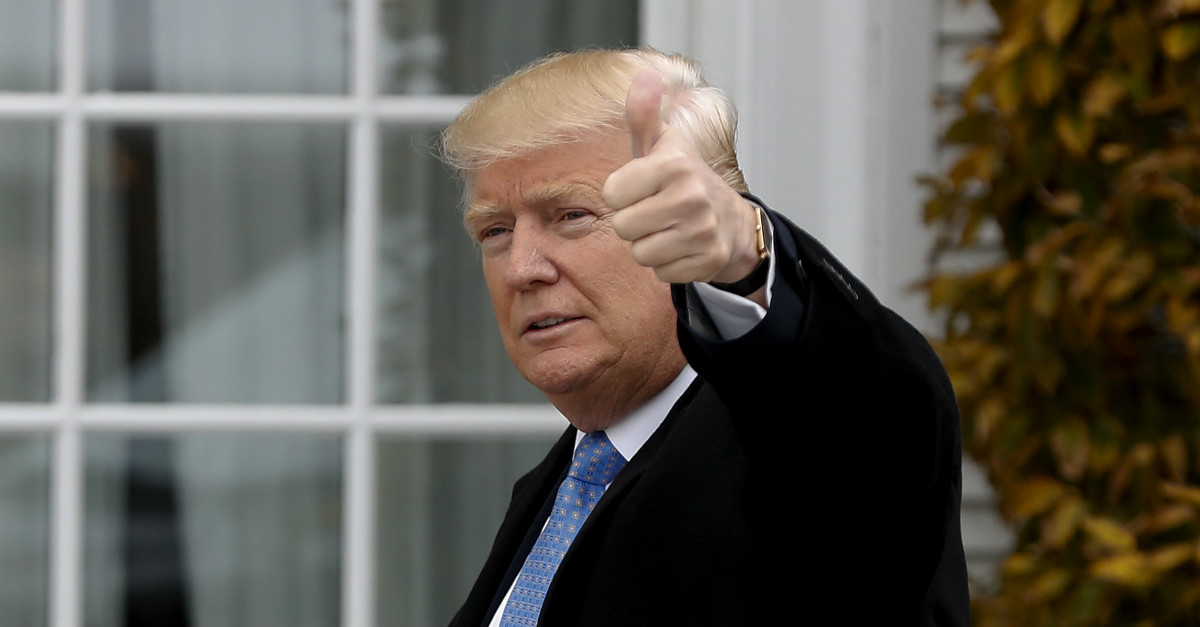Spare some tears this morning for the besieged men and women of the federal regulatory behemoth.
Videos by Rare
Donald Trump has made it known he intends to hack through more red tape than any president since Ronald Reagan and already the machetes have been unsheathed. Congress has used a little-known law called the Congressional Review Act (CRA) — which lets the legislative branch strike down recently enacted regulations — more times over the past 10 days than any previous Congress had in two years. Trump also signed an executive order mandating that for every new regulation put in place, another two have to be repealed.
That isn’t sitting well with the federal workers who have spent the past eight years collecting checks from the same taxpayers they’ve been relentlessly hamstringing.
After having one of his environmental regulations canceled under the CRA, Joe Pizarchik, a former higher-up at the Interior Department, told Politico: “My biggest disappointment is a majority in Congress ignored the will of the people. They ignored the interests of the people in coal country, they ignored the law and they put corporate money ahead of all that.”
By “will of the people,” Pizarchik is apparently citing some sort of Rousseauian general will whereby elites get to decide what the people want and inflict it on them by force. The man is an unelected bureaucrat. He’s never had to answer to the masses in his life. The coal country he purports to represent, battered for decades by environmental regulators, made its policy preferences clear when it voted overwhelmingly for Trump.
RELATED: Barack Obama has imposed more regulations than any other president in history
Meanwhile, the New York Times was busy accidentally backing into a revealing truth amidst its customary metropolitan myopia. Trump’s arrival in the White House, it reported, “has spread anxiety, frustration, fear and resistance among many of the two million nonpolitical civil servants who say they work for the public, not a particular president.” But federal bureaucrats emphatically do not work for the public. Voters have no mechanism to get rid of them and their jobs are not provided for in the Constitution, unlike the president’s. That they’ve somehow come to view themselves as democratically accountable public servants, more aligned with the heartland from their cushy chairs in Federal Center Southwest than Trump is, shows how deep the rot has spread. Decades of executive complacency has corrupted not just the role of the regulatory state but its thinking.
It seems strange that the fate of our experiment in self-government should hinge on a matter as arcane as regulatory reform, but it does. The single biggest threat to our constitutional republic right now is the wide authority claimed by a bureaucracy that can pass new rules without congressional approval and over which even their ostensible boss often has little power. This grant of authority has led to an astonishing imbalance — in 2011, the government approved 47 times more regulations than laws, with most of the former never voted on by Congress. It’s an appalling affront to democratic norms if ever there was one.
RELATED: Donald Trump just took a huge step toward helping small businesses
Trump seems determined to reestablish the primacy of our elected officials over our unelected ones, perhaps only because he himself is in the latter category, but still, kudos to him. Federal workers have bitten back with insubordination, while the Washington Post wails about the effects that Trump’s swamp-draining will have on the local lily pad and malaria sectors. Washington and its suburbs, which have boomed since the 2008 recession, are now facing the prospect of feeling a slight graze of the economic pain their officious rule-making has helped inflict on places on Appalachia. The poor darlings.
You don’t have to be ideologically anti-government to understand the problem here. The effects of regulatory overreach are real and painful, a $2 trillion hit to the economy every year, according to one study, and a $34,671 annual cost to small manufacturers. Regulation also yields inequality, with big corporations able to weather the costs and small companies sinking under them, which is why the business creation rate is currently anemic despite the supposedly recovering economy. If Trump can fix this, we may yet find an upside to his boorishness and bumbling. Just don’t expect the sinecure class to readily submit.



